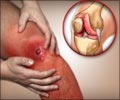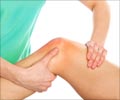U.S arthritis prevalence is much higher than current estimates. Arthritis affects the US population at a younger age than previously thought.

TOP INSIGHT
Arthritis affected 91.2 million US adults which included 61.1 million persons between 18-64 years which is 31.6 percent of the population.
The prevalence of arthritis was 29.9 percent in men aged 18-64 years, 31.2 percent in women aged 18-64 years, 55.8 percent in men aged 65 years and older, and 68.7 percent in women aged 65 years and older. Arthritis affected 91.2 million US adults (36.8 percent of the population) in 2015, which included 61.1 million persons between 18-64 years (31.6 percent of the population). The investigators' prevalence estimate is 68 percent higher than previously reported arthritis national estimates that did not correct for measurement errors in the current surveillance methods.
"Our findings are important because of underestimated, yet enormous, economic and public health impacts of arthritis including healthcare costs and costs from loss of productivity and disability, including in adults younger than 65 years of age," said Dr. Jafarzadeh. "Studies have reported a rising rate of surgeries such as total knee replacement that outpaced obesity rates in recent years, especially among younger adults affected by arthritis." He noted that current arthritis surveillance methods, which have been used since 2002, should be revised to correct for inherent limitations of the survey methods and to increase accuracy.
Source-Eurekalert
 MEDINDIA
MEDINDIA




 Email
Email










